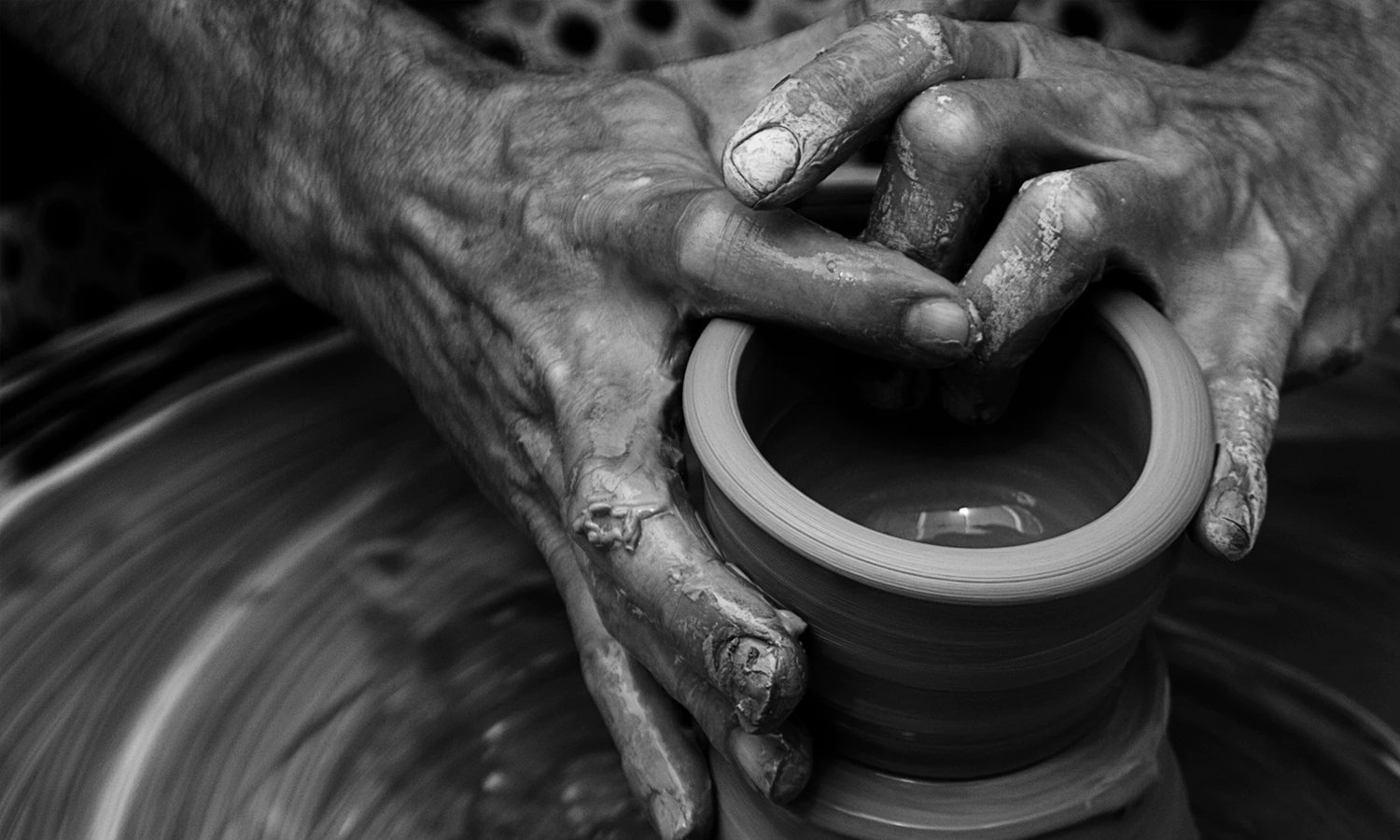
“Being set apart especially for God” or “being made holy” are the definitions of “sanctification.” There are two distinct ways that we are “made holy” in the Christian life, and it is crucial that we recognize them both and avoid confusing them.
Positional sanctification
First, there is “positional sanctification.” This refers to the moment when we first believed the gospel, God counted us perfectly holy (2 Thessalonians 1:10), and set us apart especially for Himself (1 Peter 2:9-10). This is not because we are holy in ourselves (Isaiah 6:5; 1 John 1:8), or can offer holy gifts to God (Isaiah 64:56) – we still sin every day (Luke 11:3-4). The reason God counts us holy is because of Jesus’ atoning death (Hebrews 13:12): by faith we have been united to Jesus Christ in His death and resurrection (Colossians 2:12), and so Jesus “has become for us … our righteousness, holiness and redemption” (1 Corinthians 1:30), far beyond any holiness we could ever offer for ourselves (Philippians 3:7-9). This is why one of the Bible’s most common terms for ordinary Christians is “saints” – literally, “holy ones”. So if you are a Christian, and someone asks you, “Are you holy?” in this “positional” sense, the answer is: “Yes – by God’s grace!”
Progressive sanctification
Second, there is “progressive sanctification.” Jesus saves us in our sin (Luke 5:32), but He doesn’t leave us in our sin (John 5:14): He has given us the Holy Spirit to empower us to live increasingly “holy” lives (1 Thessalonians 4:7-8) in response to what God has done for us (Romans 12:1) and in line with who we now are (Colossians 3:12). As God works in us to will and to act according to His good purpose (Philippians 1:12-13), we become increasingly useful for God’s service (2 Timothy 2:21) as we bear the fruit of the Spirit (Galatians 5:22-23) and live self-controlled lives (Ephesians 5:3; 1 Thessalonians 4:4) overflowing with hope (Romans 15:13), joy (1 Thessalonians 1:6), and praise (1 Peter 2:5, 9). So, if you are a Christian, and someone asks you, “Are you holy?” in this “progressive” sense, the answer is: “Not completely, but I’m getting there – by God’s grace!”
Don’t separate positional and progressive sanctification
Even though “positional” and “progressive” sanctification must always be distinguished, the Bible also shows that they must never be separated. Hebrews 10:14 says of Jesus: “by one sacrifice He has made perfect forever those who are being made holy.” Notice how we have ALREADY been made perfect (positional sanctification) but are still BEING made holy (progressive sanctification). Jesus gives us a picture of this in John 13:10. “A person who has had a bath needs only to wash his feet; his whole body is clean. And you are clean, though not every one of you.” Notice how the disciples who believed Jesus’ word (John 15:3; cf. 1 John 1:7) had already had the bath (positional sanctification); but they still needed regular forgiveness for their sins (cf. 1 John 1:8-10) until the day they would finally reach perfection in heaven (progressive sanctification).
It is important to understand the difference
Now that we know the distinction between “positional” and “progressive” sanctification, we can see why it is crucial. Without an understanding of “positional” sanctification, we might live our entire lives in fear of being judged, instead of celebrating God’s love and grace (Romans 5:1-2; 1 Peter 1:3), confident that God loves us and has graciously forgiven all of our sins (Acts 3:19). However, if we are ignorant of “progressive” sanctification, we can erroneously believe that Christians might attain complete holiness in this life and become discouraged by our own constant failings.
Do not deny either “positional” or “progressive” sanctification
Denying either “positional” or “progressive” sanctification is the worst thing you can do, though. Galatians 2:16 says that no matter how “moral” our lives are, we cannot be saved if we reject the prospect of redemption by grace alone—that is, through faith in Christ alone. (Romans 10:1-4). However, we should consider whether or not we are truly “in Christ” if we exhibit no symptoms of “progressive” sanctification (John 15:4-6). Regardless of what we say with our mouths, if our lives don’t demonstrate obedience to Christ (Matthew 5:13; 7:15-27), we risk being condemned as evil and unproductive servants on the last day (Matthew 18:32-35; 24:48-51; 25:26-30) or, as Matthew 7:21-23 puts it, as not even being Christ’s servants at all.
Ultimately, it is imperative to discern between “positional sanctification” and “progressive sanctification,” but never to split them apart. Faith alone can rescue us, yet even so, saving faith is never by itself. According to Hebrews 12:14, “No one will see the Lord without holiness.”





